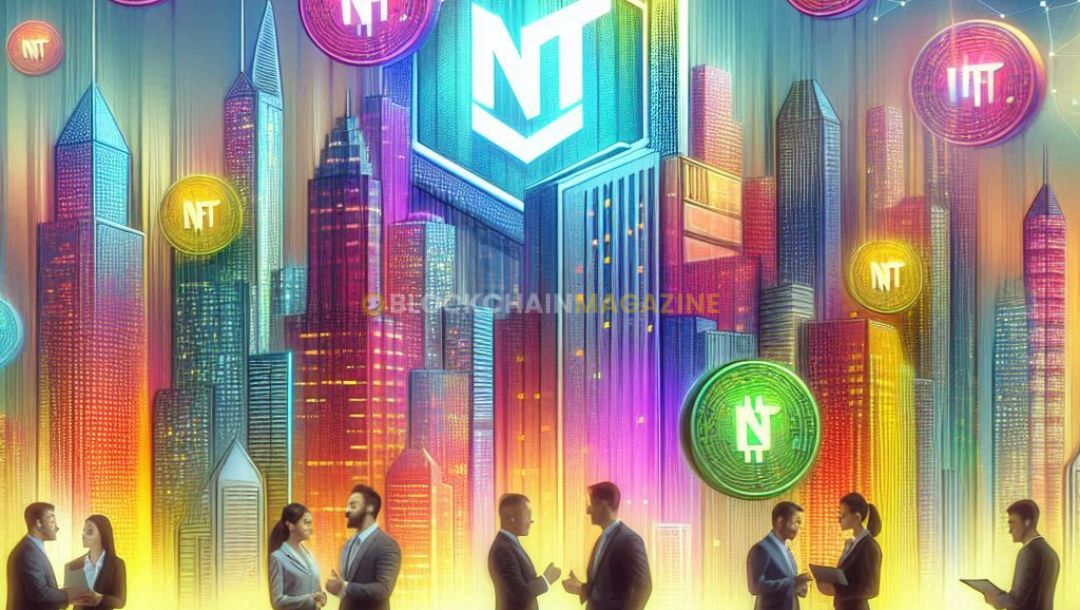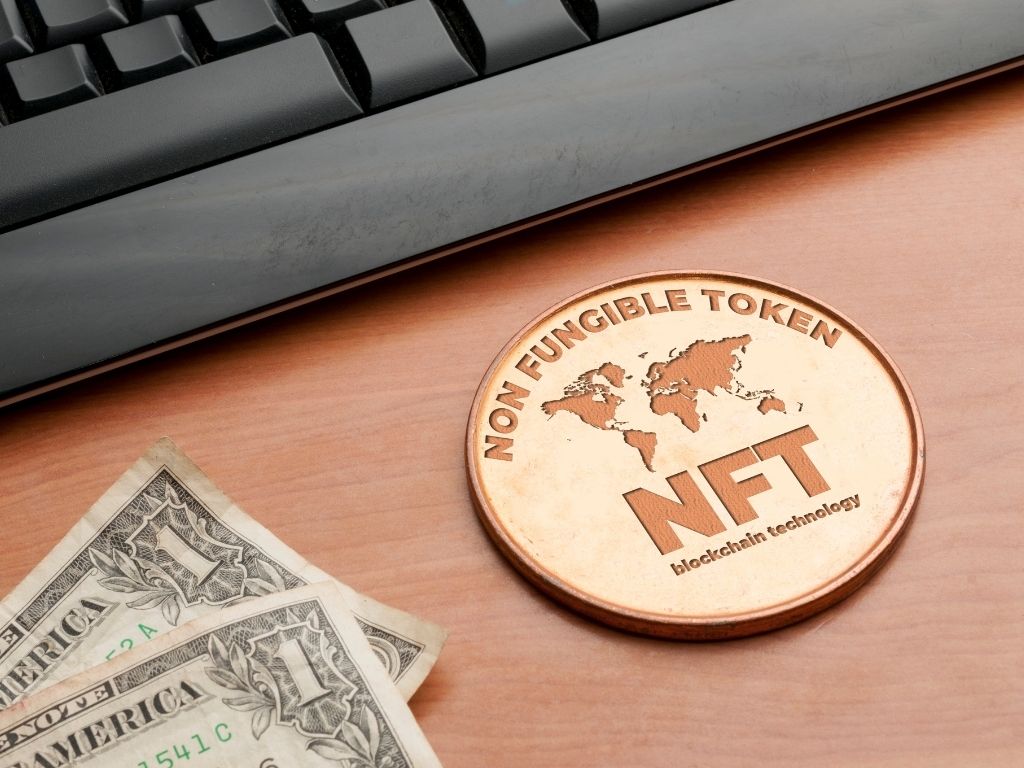The Amazing Rise of NFT-Based Fundraising Platforms: A 2024 Insight
In 2024, NFT-based fundraising platforms are changing the way nonprofits raise money. These platforms use unique digital tokens to help charities connect with supporters and boost donations. This article explores what NFTs are, how they work, and why they matter for fundraising efforts.
Key Takeaways
- NFTs are unique digital tokens that can represent ownership of digital art or collectibles.
- Nonprofits can use NFT fundraising to reach a wider audience and increase donations.
- Successful NFT campaigns have raised millions for charities, showing their potential.
- NFT fundraising is becoming more popular as organizations adapt to new technology.
- Challenges like market ups and downs and legal issues still exist in the NFT space.
Understanding NFT-Based Fundraising Platforms
What Are NFT-Based Fundraising Platforms?
NFT-based fundraising platforms are innovative tools that allow nonprofits to raise money through the sale of non-fungible tokens (NFTs). These platforms enable organizations to tap into the growing interest in digital assets. By creating unique digital items, nonprofits can attract donors who are interested in both art and philanthropy.
How Do NFT-Based Fundraising Platforms Work?
These platforms operate by allowing nonprofits to auction or sell NFTs, with proceeds going directly to their causes. Here’s how it typically works:
- Creation of NFTs: Nonprofits collaborate with artists to create unique digital artworks.
- Auction or Sale: These NFTs are then auctioned or sold on various marketplaces.
- Donation Processing: The funds raised are processed through cryptocurrency transactions, making it easy for donors to contribute.
Key Features of NFT-Based Fundraising Platforms
- Blockchain Technology: Ensures transparency and security in transactions.
- Broader Reach: Connects nonprofits with a global audience of potential donors.
- Sustainable Revenue: Provides a new stream of income that can be repeated over time.
NFT fundraising is not just a trend; it represents a shift in how nonprofits engage with their supporters and raise funds.
By leveraging the power of digital assets, nonprofits can create lasting relationships with a new generation of donors, ensuring their missions continue to thrive in the digital age.
The Evolution of NFT-Based Fundraising
Early Beginnings and Milestones
The journey of NFT-based fundraising began with the creation of the first NFTs in 2014. These digital tokens opened new doors for nonprofits. By 2021, NFTs gained massive popularity, leading to significant donations from the NFT community to various charities. Here’s a quick timeline of key events:
| Year | Milestone |
|---|---|
| 2014 | First NFT created by Kevin McCoy |
| 2021 | NFT donations reach $12.3M for charities |
| 2023 | Continued growth in NFT fundraising efforts |
| 2024 | New projects like NodeMonkes emerge |
Major Developments in 2023
In 2023, NFT fundraising saw remarkable growth. Nonprofits began to leverage blockchain technology more effectively, leading to:
- Increased partnerships with NFT creators.
- More charity auctions featuring NFTs.
- A rise in community-driven fundraising initiatives.
Predictions for 2024
Looking ahead, the NFT fundraising landscape is expected to evolve further. Experts predict:
- Greater integration of NFTs with other technologies.
- Emergence of new marketplaces focused on charity.
- A stronger emphasis on sustainability and ethical practices.
The rise of NFT fundraising is reshaping how nonprofits connect with supporters, making it a vital tool for future fundraising efforts.
This evolution highlights how NFTs are not just a trend but a transformative force in the nonprofit sector, enabling organizations to reach new heights in fundraising.
Benefits for Nonprofits Using NFT-Based Fundraising Platforms
Increased Donation Revenue
NFT-based fundraising can significantly boost a nonprofit’s income. Many organizations have reported higher donation amounts through NFT sales compared to traditional methods. This new revenue stream allows nonprofits to fund their missions more effectively.
Broader Donor Reach
NFTs attract a diverse group of supporters. By engaging with the NFT community, nonprofits can connect with younger donors who are interested in digital assets. This broader reach can lead to more consistent support and engagement.
Sustainable Fundraising Models
NFTs offer a unique way to create ongoing revenue. Nonprofits can establish long-term partnerships with NFT creators, leading to continuous donations. This model helps organizations maintain financial stability over time.
Nonprofits embracing NFTs are not just keeping up with trends; they are paving the way for future fundraising strategies.
| Benefit | Description |
|---|---|
| Increased Revenue | Higher donation amounts through NFT sales. |
| Broader Donor Reach | Access to a diverse and engaged donor base. |
| Sustainable Models | Long-term partnerships for ongoing support. |
Case Studies of Successful NFT-Based Fundraising Campaigns
Notable Campaigns in 2023
In 2023, several nonprofits successfully utilized NFTs to raise funds. Here are a few standout examples:
- Hackatao’s Collaboration: The crypto artist duo Hackatao raised $50,000 for Outright International through NFT sales.
- Bored Ape Yacht Club: This popular NFT collection donated $12.3 million to various charities, showcasing the power of community-driven giving.
- World of Women: This project committed a percentage of its proceeds to support women’s charities, demonstrating a strong social impact.
Innovative Approaches and Strategies
Nonprofits have adopted various strategies to maximize their NFT fundraising efforts:
- NFT Auctions: Hosting auctions for unique digital art pieces.
- Partnerships with Creators: Collaborating with NFT artists to create exclusive collections.
- Community Engagement: Actively involving the NFT community in fundraising efforts.
| Campaign Name | Amount Raised | Year |
|---|---|---|
| Hackatao & Outright | $50,000 | 2023 |
| Bored Ape Yacht Club | $12.3M | 2023 |
| World of Women | Varies | 2023 |
Lessons Learned from Successful Campaigns
From these campaigns, several key lessons emerged:
- Engagement is Key: Building a strong relationship with the NFT community is crucial.
- Transparency Matters: Donors appreciate knowing how their contributions are used.
- Adaptability: Nonprofits must be willing to adjust their strategies based on market trends.
NFT fundraising is not just a trend; it’s a new way for nonprofits to connect with supporters and raise funds.
By learning from these successful campaigns, other organizations can better navigate the NFT landscape and harness its potential for fundraising.
Challenges and Considerations for NFT-Based Fundraising
Regulatory and Legal Issues
NFT fundraising is still a new concept, and laws are catching up. Nonprofits must navigate various regulations that can differ by region. This can include:
- Understanding tax implications for cryptocurrency donations.
- Ensuring compliance with local fundraising laws.
- Addressing potential copyright issues with NFT content.
Technical Challenges
Adopting NFT fundraising requires a good grasp of blockchain technology. Nonprofits may face:
- The need for specialized knowledge to create and manage NFTs.
- Investment in secure platforms to handle transactions.
- Ongoing maintenance of digital assets and wallets.
Market Volatility and Donor Trust
The NFT market can be unpredictable. Fluctuations in value can affect donations. Nonprofits should consider:
- The potential for significant changes in NFT prices.
- Building trust with donors by being transparent about risks.
- Educating supporters on the nature of NFTs and their value.
Nonprofits must be prepared to adapt to the evolving landscape of NFT fundraising, as challenges like environmental impact and lack of regulation require solutions for NFTs to reach their full potential.
Future Trends in NFT-Based Fundraising Platforms
Integration with Other Technologies
The future of NFT-based fundraising is bright, especially with the integration of new technologies. Nonprofits are expected to leverage:
- Blockchain for transparency and security.
- Smart contracts to automate donation processes.
- Virtual reality (VR) to create immersive fundraising experiences.
Emerging Marketplaces and Platforms
As the NFT landscape evolves, new marketplaces are emerging. These platforms will:
- Offer unique features tailored for nonprofits.
- Provide better tools for tracking donations.
- Enhance user experience with simplified interfaces.
Sustainability and Ethical Considerations
With the rise of NFT fundraising, there is a growing focus on sustainability. Nonprofits are encouraged to:
- Use eco-friendly blockchain solutions.
- Promote carbon credit NFTs to offset emissions.
- Ensure ethical practices in NFT creation and sales.
The NFT community is becoming more aware of its impact, pushing for sustainable practices in fundraising efforts.
In summary, the future of NFT-based fundraising platforms will be shaped by technology integration, the rise of new marketplaces, and a commitment to sustainability. Nonprofits that adapt to these trends will likely see increased engagement and support from the donor community.
How to Get Started with NFT-Based Fundraising
Choosing the Right Platform
To kick off your NFT fundraising journey, selecting the right platform is crucial. Here are some steps to consider:
- Research various platforms that support NFT sales and fundraising.
- Look for platforms that offer user-friendly interfaces and good customer support.
- Check if the platform has a history of successful fundraising campaigns.
Creating and Marketing Your NFTs
Once you’ve chosen a platform, it’s time to create and market your NFTs. Here’s how:
- Design unique NFTs that resonate with your cause.
- Use social media to promote your NFTs and engage potential donors.
- Consider collaborating with artists or influencers to broaden your reach.
Engaging with the NFT Community
Building relationships within the NFT community can enhance your fundraising efforts. Here are some tips:
- Participate in online forums and discussions about NFTs.
- Attend virtual events or webinars focused on NFT fundraising.
- Network with other nonprofits that have successfully used NFTs for fundraising.
Engaging with the NFT community can lead to long-term support and increased visibility for your cause. As we approach 2024, the digital assets market is on the brink of significant transformation, driven by blockchain advancements and the tokenization of real-world assets. This evolution promises unprecedented growth, with projections suggesting a rise from $300 billion to over $10 trillion by 2030. However, overcoming regulatory hurdles and ensuring robust infrastructure will be crucial for sustained success as digital assets gain mainstream acceptance.
Conclusion
In conclusion, the rise of NFT-based fundraising platforms marks a significant change in how charities gather support. As we move through 2024, it’s clear that NFTs are not just a trend; they are becoming a vital tool for nonprofits. These platforms allow organizations to reach new donors and create unique fundraising opportunities. By embracing NFTs, charities can tap into a growing community that is eager to make a difference. This shift not only helps nonprofits raise more money but also connects them with a younger audience that values innovation. As the world of fundraising continues to evolve, NFTs will play an important role in shaping the future of charitable giving.
Frequently Asked Questions
What is an NFT?
An NFT, or non-fungible token, is a special digital item that proves ownership of something unique, like a piece of art. Unlike regular money, which can be exchanged for other money, each NFT is one-of-a-kind.
How do NFT fundraising platforms work?
These platforms let nonprofits sell NFTs to raise money. When someone buys an NFT, part of the money goes to the charity, helping them with their projects.
Why should nonprofits consider using NFTs?
NFTs can help nonprofits reach new donors and raise more money. They also allow charities to connect with a younger audience who is interested in digital art and technology.
What are some successful examples of NFT fundraising?
In 2023, many charities raised significant amounts of money through NFT sales. For instance, some artists donated a portion of their NFT sales to help causes like environmental protection.
What challenges do nonprofits face with NFT fundraising?
Nonprofits might struggle with understanding the technology, dealing with legal rules, and managing the ups and downs of the NFT market.
What does the future hold for NFT fundraising?
In the coming years, NFT fundraising is expected to grow. More charities will likely use NFTs, and new technologies may make the process easier and more efficient.
Stay informed with daily updates from Blockchain Magazine on Google News. Click here to follow us and mark as favorite: [Blockchain Magazine on Google News].
Get Blockchain Insights In Inbox
Stay ahead of the curve with expert analysis and market updates.
latest from tech
Disclaimer: Any post shared by a third-party agency are sponsored and Blockchain Magazine has no views on any such posts. The views and opinions expressed in this post are those of the clients and do not necessarily reflect the official policy or position of Blockchain Magazine. The information provided in this post is for informational purposes only and should not be considered as financial, investment, or professional advice. Blockchain Magazine does not endorse or promote any specific products, services, or companies mentioned in this posts. Readers are encouraged to conduct their own research and consult with a qualified professional before making any financial decisions. The featured image used is just a creative depiction of the title and it does not intend to hurt sentiments of any person or institution. If it hurts anyone sentiments, please do not hesitate to reach out to Blockchain Magazine.

 Bitcoin
Bitcoin  Ethereum
Ethereum  XRP
XRP  Tether
Tether  Solana
Solana  USDC
USDC  Dogecoin
Dogecoin  Cardano
Cardano  Lido Staked Ether
Lido Staked Ether  TRON
TRON  Wrapped Bitcoin
Wrapped Bitcoin  Chainlink
Chainlink  Wrapped stETH
Wrapped stETH  Avalanche
Avalanche  Sui
Sui  Stellar
Stellar  Hedera
Hedera  Toncoin
Toncoin  Shiba Inu
Shiba Inu  Hyperliquid
Hyperliquid  LEO Token
LEO Token  Litecoin
Litecoin  Bitget Token
Bitget Token  WETH
WETH  USDS
USDS  Polkadot
Polkadot  Bitcoin Cash
Bitcoin Cash  Ethena USDe
Ethena USDe  Wrapped eETH
Wrapped eETH  Uniswap
Uniswap  MANTRA
MANTRA  Ondo
Ondo  Pepe
Pepe  Monero
Monero  Aave
Aave  NEAR Protocol
NEAR Protocol  WhiteBIT Coin
WhiteBIT Coin  Official Trump
Official Trump  Mantle
Mantle  Aptos
Aptos  Dai
Dai  Internet Computer
Internet Computer  Ethereum Classic
Ethereum Classic  Bittensor
Bittensor  Cronos
Cronos  OKB
OKB  POL (ex-MATIC)
POL (ex-MATIC)  Gate
Gate 




